Average sizes and life expectancy for this breed:
The Chinese Crested is one of the most recognizable dogs in the world thanks to their distinct tufted ears and graceful gait. This exotic breed comes in two variants:
What attracts many people to the unique Chinese Crested breed is their incredibly affectionate and snuggly demeanors. They would much rather chill with you on the sofa than run around like regular dogs. However, these small dogs are still athletic enough to compete in agility courses.
Chinese Crested may not be extroverts, but they bond quickly with their pack. Once one falls in love with you, he or she will be your little stalker for life.
See available puppies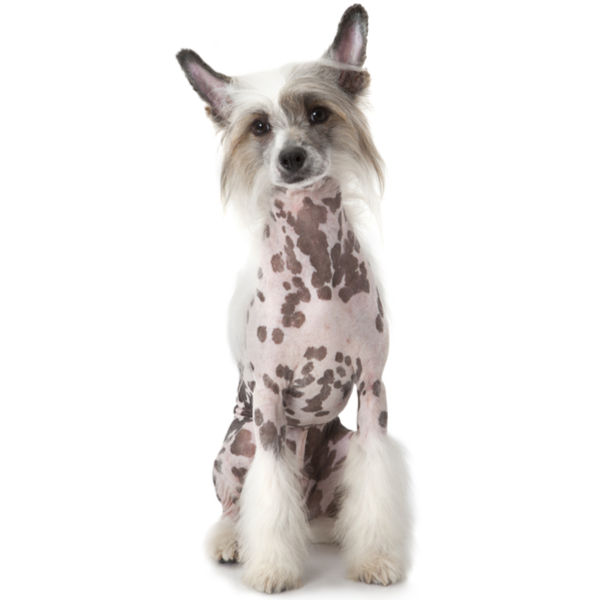

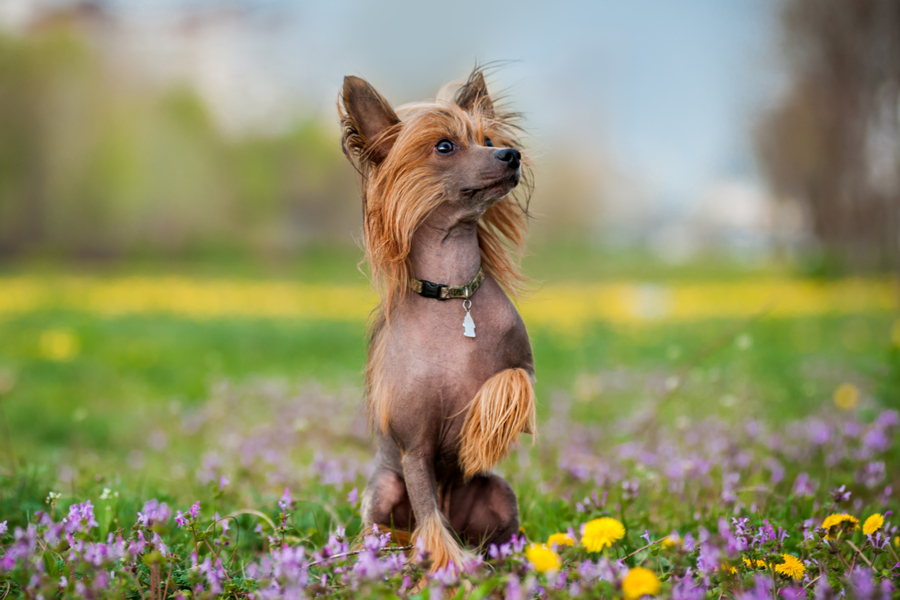


The origin of the Chinese Crested is still a little bit of a mystery. Some experts believe they originated in Africa, where they were known as African Hairless Terriers. Others believe the evidence points to a genetic connection to the Mexican Hairless dog (also known as the Xoloitzcuintli). Some canine experts even claim that the Chinese Crested dates back to 16th Century China.
Whatever their origin, we know that Chinese Crested dogs accompanied Chinese sailors on the high seas as early as the 1500s. They were also frequently traded with local merchants at ports. Chinese Crested dogs were famed as excellent ratters that helped to keep the ships clear of vermin. It’s a well-known fact that hairless dogs were preferred by sailors to hunt flea-infested rodents on the ships during the time of the plague.
Additionally, Chinese Crested dogs were held in high esteem by Chinese emperors because they were believed to possess magical healing powers. They also worked well as living heat pads during the colder months!
During this time, the Chinese Crested breed went through many names, including the Chinese Hairless, the Chinese Ship Dog, and the Chinese Royal Hairless.
Over the years, these dogs were bred extensively across China, reducing their size to the adorable toy dog breed we know today.
We know that early European explorers likely discovered the breed in the early 1800s in Africa and Asia because they kept very detailed journals of their findings. By the middle of the 19th Century, these dogs could be found on numerous European prints and paintings.
During the 1950’s several Chinese Crested dogs were brought to England and exhibited at a zoological show. As a result, the first Chinese Crested was registered in England in 1881. However, they failed to gain popularity and quickly died out.
Around the same time, the breed started to gain popularity in the United States and caught the attention of Ida Garrett. Over the next 60 years, she bred and exhibited the Chinese Crested dog. Alongside another breed enthusiast, Debra Woods, she helped the breed to gain popularity across the US for the next few decades.
The first Chinese Crested Dog Club was founded in 1969 in London, UK. The American breed club followed shortly after in 1979. In 1981, the British Kennel Club officially recognized the breed, with the American Kennel Club finally following suit in 1991.
Despite its early fame, the Chinese Crested dog breed is now considered to be one of the rarest dog breeds worldwide.
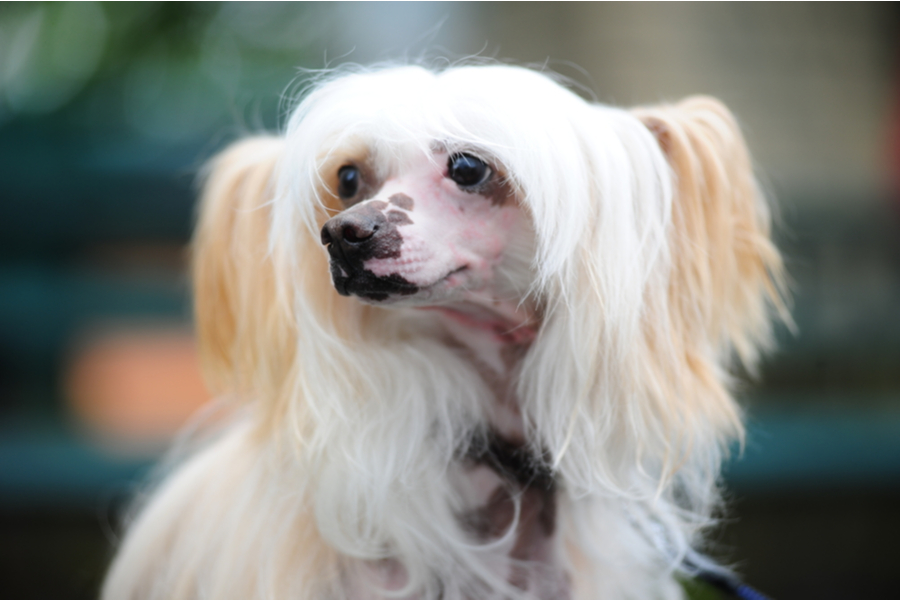
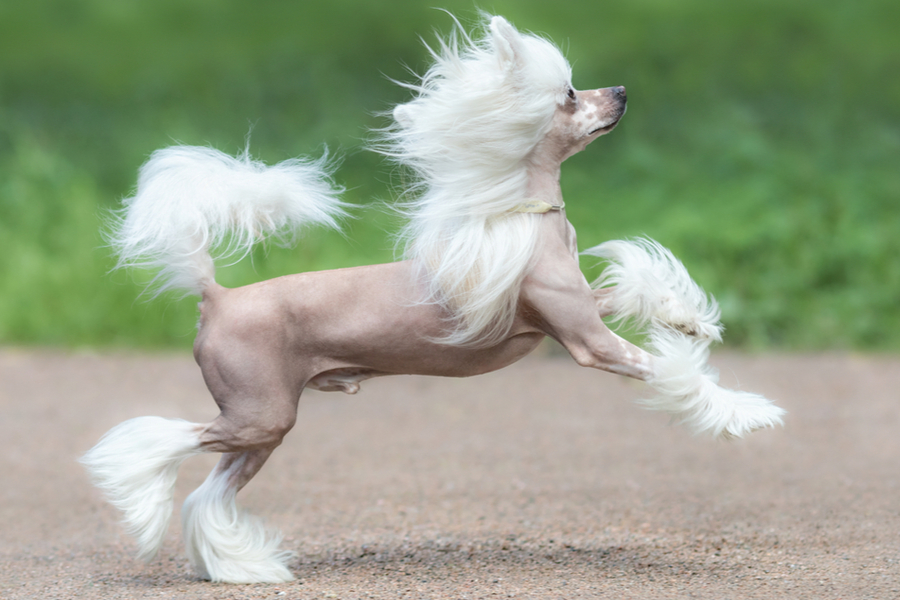
The Chinese Crested is an exotic-looking dog with a slender, elegant appearance. There are two varieties of this breed; one being more deer-like and fine-boned, whereas the other is heavier and stockier looking. Some dogs are virtually hairless except for long wisps of hair on their heads, ankles, and tail. The longer-haired variety, the Powderpuff, has a long, silky, and soft coat across the whole body.
Both long and hairless Chinese Crested dogs can appear in the same litter. The difference is actually down to a single gene. However, dogs that are born with two copies of the hairless gene don’t survive the embryonic stage of development. This means every Chinese Crested carries both the ‘haired’ and ‘hairless’ genes.
Their heads are rounded and slightly elongated with defined cheeks and slim muzzles. Both their heads and faces are smooth with no wrinkles and their noses can be of any colour. They hold their heads gracefully with an alert expression. However, like many hairless dog breeds, some individuals can have missing teeth or forward-pointing canines which are acceptable under the breed standard.
Chinese Crested dogs have tight lips and a long flowing crest of hair over the head. However, a sparser covering is also excepted. Placement of the hair is not overly important in the hairless variety but it usually tapers off slightly.
The Chinese Crested breed has almond-shaped that are almost black in colour and set wide apart on the head. Their ears are large and erect which just adds to their endearing appearance. Saying that, Powderpuff Chinese Crested dog’s ears tend to drop slightly.
Chinese Crested dogs carry their heads high with their necks somewhat arched when they are on the move. They have quite narrow and well laid-back shoulders. Their legs are long and slender, with neat feet and their bodies are fairly long with a broad chest. Their long plumes flow gracefully over the back and generally cover around two-thirds of the tail.
The Chinese Crested breed has slightly longer toes than most other breeds. This anomaly is known as ‘hair-footed’.
The hairless Chinese Crested has smooth, finely grained skin that is warm to the touch. However, the Powder Puff variety has an undercoat with a soft veil of long, flowing hair covering the whole body. Colours accepted under the breed standard are:
Known for their happy, lively characters, the Chinese Crested breed is a great choice for novice dog owners because of their affectionate, intelligent, and loyal natures. They also rarely show signs of aggression towards their families, although they can be fairly stubborn at times.
Like other small dog breeds, Chinese Crested think they are much bigger than they really are! They may be small in stature but their remarkable personalities more than make up for this. They can be pretty willful and dominant if you let them!
These dogs are tough, agile, and alert. So, they tend to excel in many canine sports, including agility courses. These intelligent dogs are friendly, energetic, playful, and amazingly good with children. Saying that, you should ensure your kids know how to approach and handle small dogs because they are known to be snappy when they are feeling anxious, frightened, or overexcited. Despite, their social natures, these dogs can be wary of strangers so they prefer to keep their distance.
With their cute, miniature appearance, it can be tempting to ‘baby’ a Chinese Crested. This is not recommended because it can lead to nervousness and a timid personality, which will make them more even uncomfortable around strangers. It can also lead to unwanted behaviours such as barking and nipping.
Chinese Crested dogs need to be handled and trained firmly yet gently so they get to know their place in the ‘’pack’. Otherwise, they may start to show their dominant side which can be hard to correct once it has been established.
The Chinese Crested must not be left alone for long periods because they can suffer from separation anxiety. This can lead to the development of destructive behaviours such as digging and inappropriate urination.
Despite their small size, Chinese Crested dogs are very skilled climbers. So, make sure you provide ultra-secure fences to keep them safely inside. As they are a bit headstrong, early socialization, training, and education are a must.
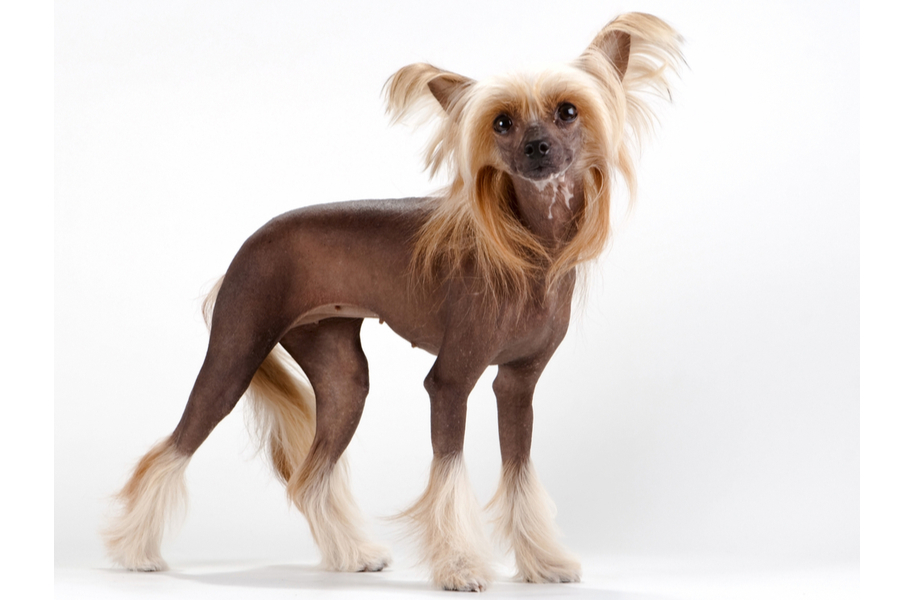
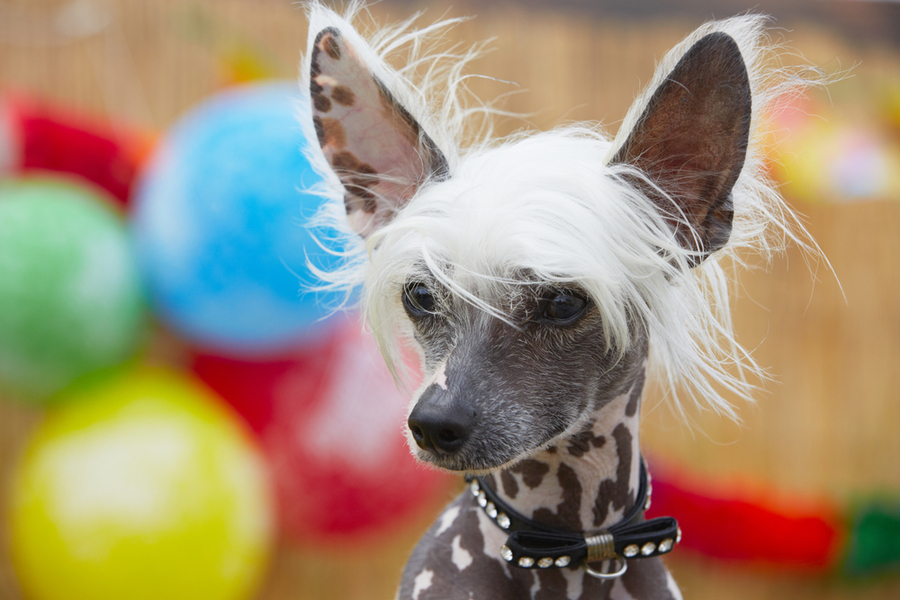
The Chinese Crested breed can be ultra-sensitive and nervous, especially around strangers. So, they need to be handled with care. These dogs are intelligent, so, in the right hands, they can be successfully trained using positive reinforcement methods.
Like other toy breeds, Chinese Crested dogs can be somewhat difficult to housetrain. So, expect some accidents along the way! Patience is the key to successfully training a Chinese Crested dog.
First-time dog owners need to understand that hairless dogs have different care needs than other dogs. While they don’t need regular brushing, their skin needs to be maintained because it can be prone to dryness. This can lead to the development of irritating sores. It’s a good idea to consult your vet to find the best cleaning products to use on your Chinese Crested dog.
Furthermore, these dogs struggle in cold weather, so you will need to take precautions during the winter months.
Contrary to popular opinion, the hairless areas on a Chinese Crested are not entirely hairless. They are actually coated with a very thin layer of fine hair. Most owners choose to shave or trim these areas regularly to prevent skin problems from developing. When it comes to the long hair, you should brush it weekly with a soft slicker brush. Just make sure to be gentle when brushing as their delicate skin can be easily damaged.
Powderpuff Chinese Crested dogs boast a long, double-layered coat that requires regular weekly or bi-weekly grooming to prevent matts.
Their ears must also be checked often to keep them free of any dirt, debris, or wax build-up. To do this, use a clean cotton ball or cloth with a vet-approved ear cleanser to gently wipe the outer ears. If you notice your dog continuously scratching their ears or shaking their heads, it’s best to call your vet because these are often symptoms of an ear infection.
Daily toothbrushing is still the best option to prevent tooth decay, gum disease, and bad breath. However, brushing their teeth twice a week is more than adequate to prevent tartar build-up. If you’re unsure about the best products to use, you can ask your vet for advice.
The Chinese Crested’s nails must be cleaned and trimmed regularly to avoid them from growing too long. But bear in mind that these dogs also have a long ‘quick’ compared to other breeds (blood supply to the nails), so only cut off a small amount at a time. When you trim and clean their nails, make sure to check their paw pads to check that they are healthy, clean, and injury-free.
Lastly, don’t forget to examine their whole body as you groom them to make sure they have no wounds, soreness, injuries, or other signs of infection. Check their eyes too. They should be clean, clear, and free from any irritation or discharge.
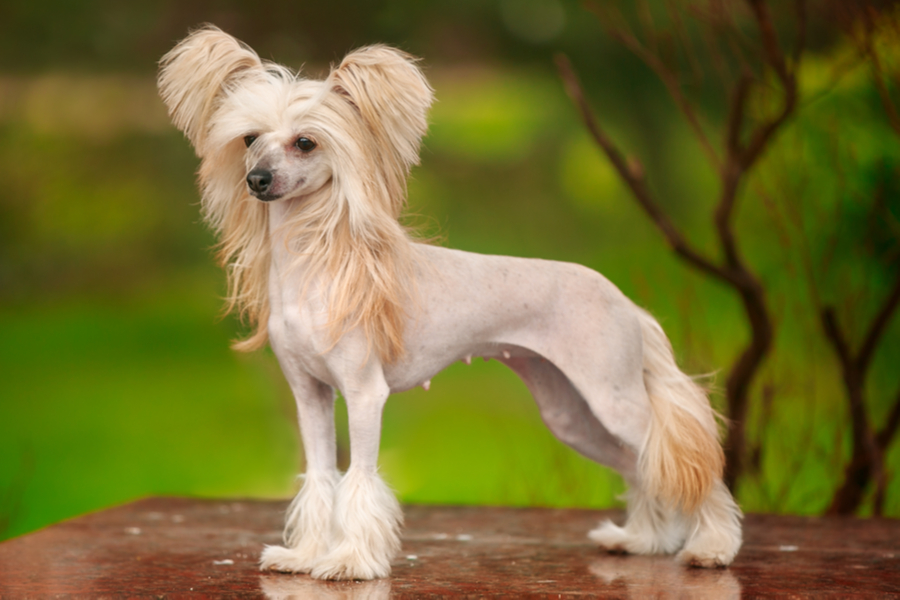
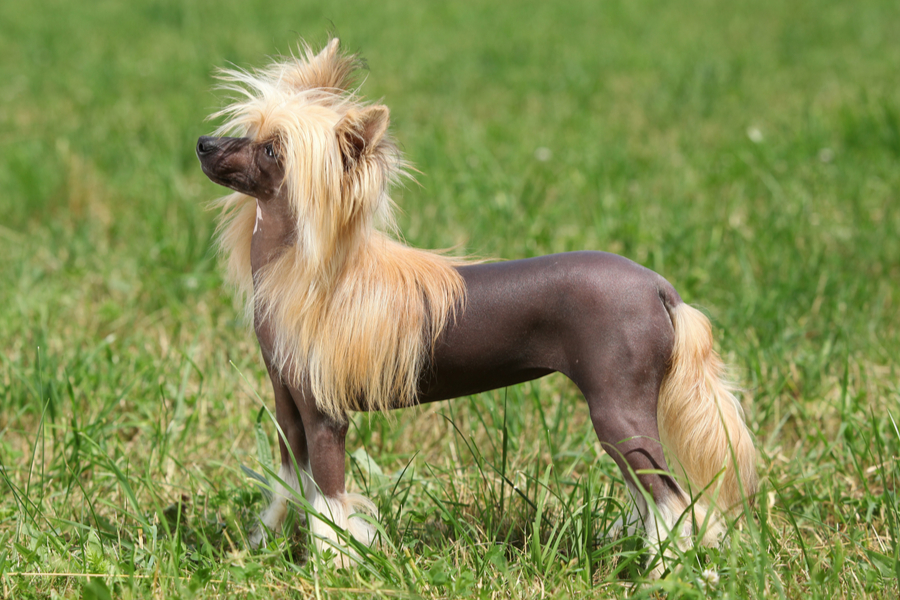
When purchasing any puppy, regardless of breed, always make sure you purchase from a reputable and ethical breeder as they will be able to perform checks to ensure there are no underlying health issues present.
Chinese Crested dogs are known to suffer from certain health issues, which can include the following:
Chinese Crested dogs are generally good around children as long as they have been well-socialised as puppies. You should always teach your kids to handle these dogs with care because they are small-boned and fragile. The best option is to supervise all interactions between children and a Chinese Crested puppy.
Chinese Crested rarely shows any aggression towards other dogs and they are generally very tolerant of cats, particularly if they have grown up in the same household. However, it’s not advisable to leave your Chinese Crested alone with smaller pets because they may be perceived as prey.
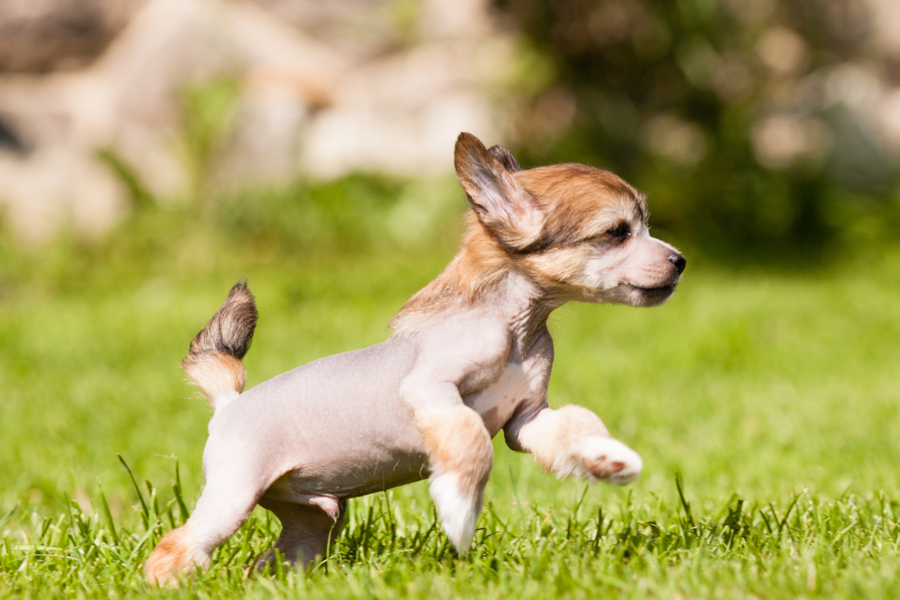
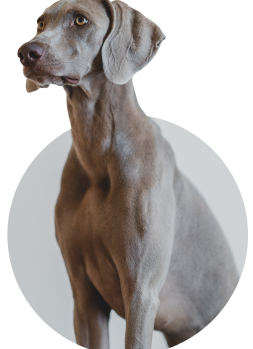
We can connect you with Breeders that are specialized in this particular breed.
See available puppies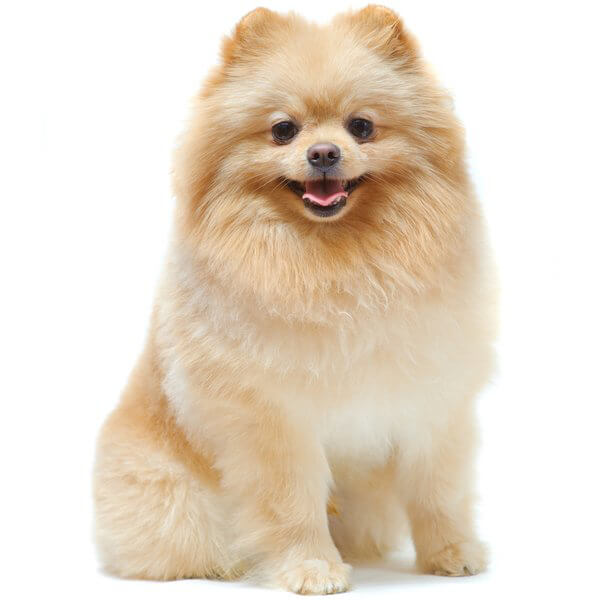
Germany
Size : Small
Coat : Long
Registration : KC, FCI, AKC
Exercise : 30 minutes
Training : Medium
Grooming : Twice a Week
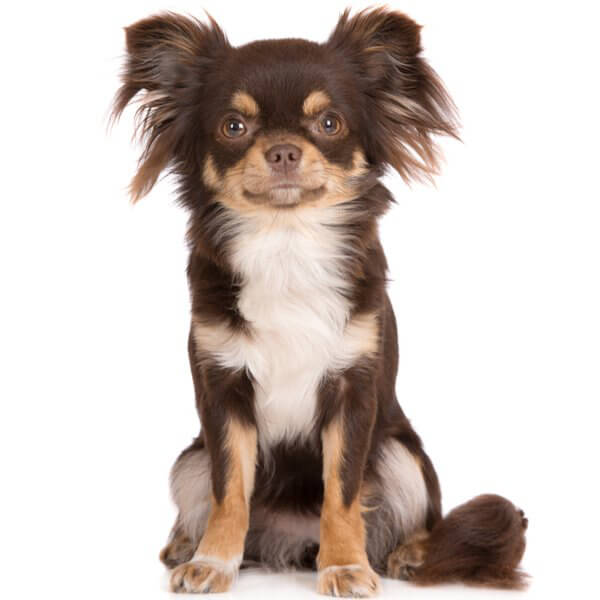
Mexico
Size : Small
Coat : Long
Registration : KC, FCI, AKC
Exercise : 30 minutes
Training : Easy
Grooming : Twice a Week
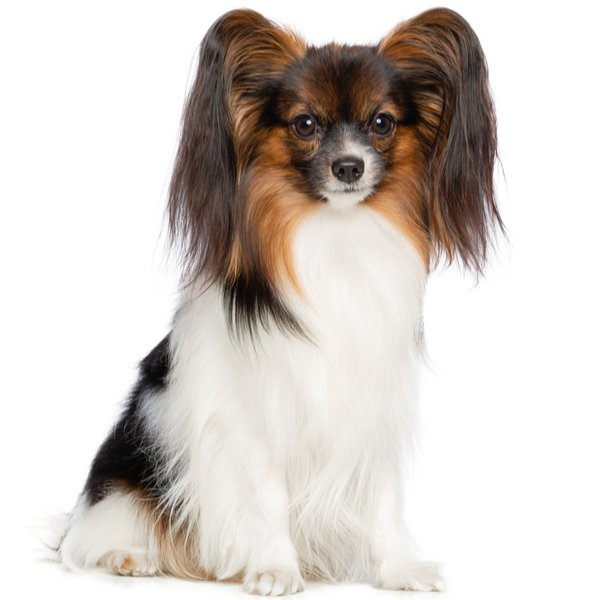
France
Size : Small
Coat : Long
Registration : KC, FCI, AKC
Exercise : 30 minutes
Training : Easy
Grooming : Once a Week
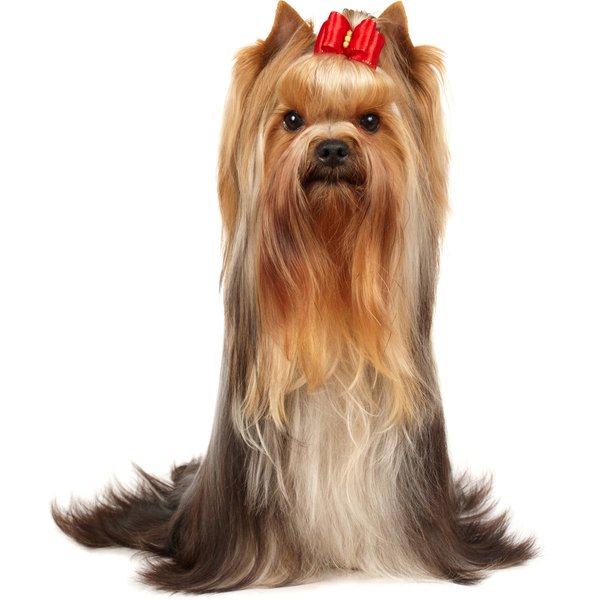
United Kingdom
Size : Small
Coat : Long
Registration : KC, FCI, AKC
Exercise : 30 minutes
Training : Easy
Grooming : Twice a Week


Need some advice?
Whether you're a first time pet owner, an experienced pet owner, a new or long-time breeder, or just curious about pets, we've got you covered!
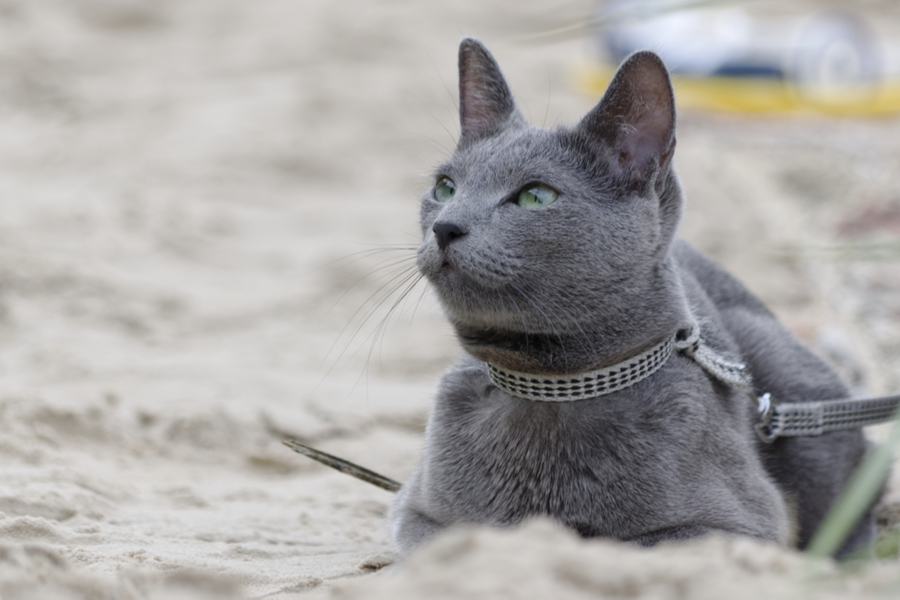
January 17, 2024
What Is The Personality Of Russian Blue Cats?
Russian Blue cats are most known for their distinctive shimmery blue-silver coat and piercing green eyes. However, this breed’s calm and gentle temperament is what makes them shine the most in the feline world.
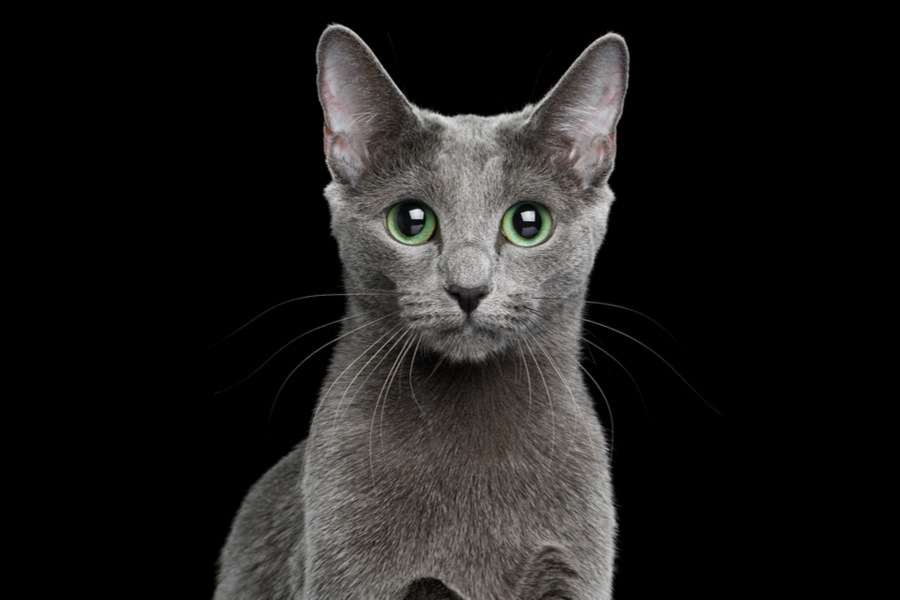
January 17, 2024
10 Facts About Russian Blue Cat Breed
Russian Blues are one of the most aesthetically stunning cat breeds, with a gorgeous plush silvery coat and vibrant green eyes. However, it’s not only their appearance that is beautiful; their nature is too.
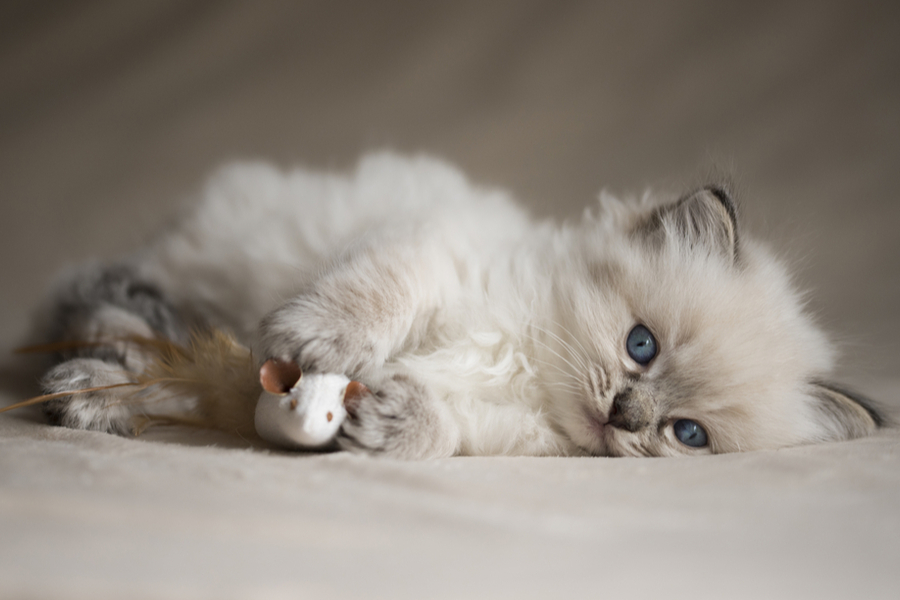
January 17, 2024
How To Choose The Right Cat Breed for You
Cats can make the most fantastic animal companions; they are adorable, friendly, and loving. However, not all felines are created equal. There are many different breeds, of which each has its unique personality traits.
Need some help?
Contact us to speak to our friendly advisor, who will gladly help you find your dream pet!



We are registered in England and Wales under registration number 12568840,
and our registered office is at 58-60 Kensington Church Street, W8 4DB London, England.
© 2023 The Pedigree Paws